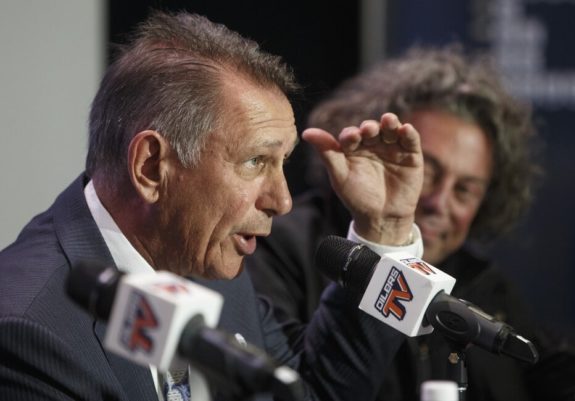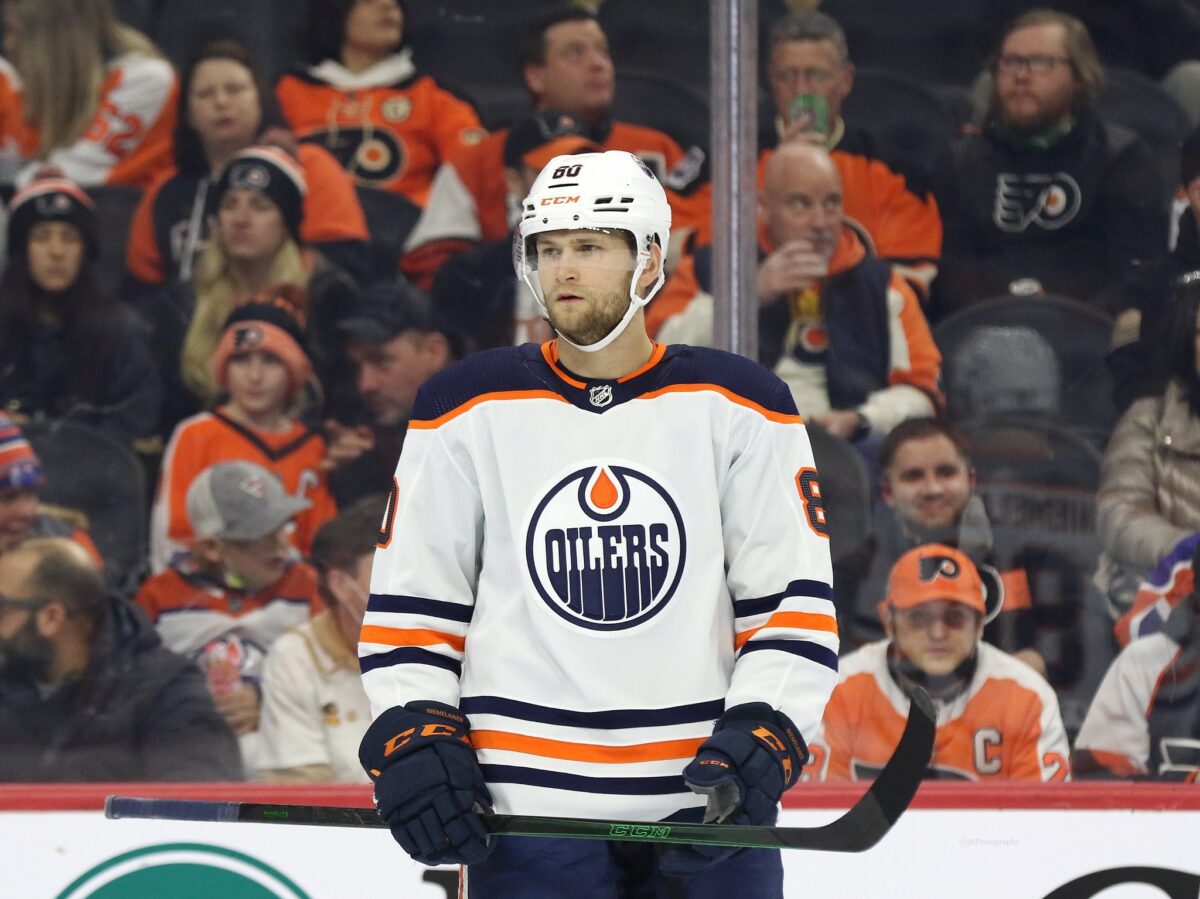Despite the Edmonton Oilers’ ups and downs this season, they have managed to claw their way into the playoff picture. They are in a pretty comfortable position with some games in hand on the trailing teams, which should theoretically prompt general manager (GM) Ken Holland to want to make notable additions to help his roster compete in the playoffs. Unfortunately, that’s not exactly what Holland did.

The Oilers did not drastically tinker with their forward group and opted only to add defenseman Brett Kulak and forward and Derick Brassard to their roster. The club also decided not to add a goaltender, despite its inconsistent goaltending being one of their biggest concerns for the majority of the season. This is Holland’s third deadline with this club, and each one has been uneventful and underwhelming without providing any real vote of confidence to the roster.
Holland’s Trade Deadline History Speaks for Itself
Aside from a few players lingering around from previous management regimes, this is virtually Holland’s roster. He had ample time to put the pieces in place to help the team and address roster needs for several seasons, but has been without much success.
Related: Edmonton Oilers Trade Deadline History
He is notorious for being stingy with his future assets, which is understandable, but how much is too stingy when you have two of the best players in the league in the primes of their careers. Since being hired in May 2019, Holland has made a total of five moves prior to this season that would be considered deadline deals. None of them put them over the top, or even gotten them past the first round of the playoffs.
In 2020 Holland brought in Mike Green, Andreas Athanasiou, and Tyler Ennis, along with a conditional seventh that they never ended up receiving. In 2021, he made one move at the deadline in acquiring Dmitry Kulikov, who also ended up leaving the team the offseason. Holland continuously makes minor depth moves, and refuses to pony up the assets to get impact players to inject in the lineup. This has been a recurring theme for the last few seasons, and is leading to mediocre results in the postseason.
Kulak Acquisition is an Overpayment
Holland acquired the Canadiens’ defenseman for a 2022 second-round pick — but could become a 2023 second-rounder if the Oilers make the Stanley Cup Final — as well as a 2024 seventh-round pick and defenseman William Lagesson. While the Canadiens did retain 50 percent of Kulak’s salary, it’s a blatant overpayment. Despite the trade market as a whole being inflated this season, giving up a second-rounder and more for a depth defenseman is too high of a price. I’m not saying Kulak is not a good fit for the Oilers and won’t help this roster be more effective, but the cost of the asset doesn’t seem like it was worth the upgrade.
Considering the Oilers already had a plethora of depth guys they could use at this position, it’s hard to believe there wasn’t a cheaper rental to fill the need on the market. Lagesson will benefit from going to a place with more opportunity, and the Oilers needed to move out a player to remain cap compliant, but they already had capable defensemen in Kris Russell and Markus Niemelainen, who could provide similar production to what Kulak can.
It’s somewhat of a head-scratcher to see other depth defensemen like Justin Braun, Travis Dermott, and Joshua Brown fetching third-round picks or less in return, and the Oilers having to pay so much to accomplish the same thing. The fact that Marc-Andre Fleury also went for a second-round pick that could turn into a first seems like something the Oilers would have benefitted more from, considering the price of the Kulak deal is not much further off.
Oilers Cap Situation Limited Deadline Moves
The Oilers aren’t the only team that’s cap-strapped, and shouldn’t use it as an excuse. Just because a deal may be tougher to get done because of cap restraints doesn’t mean it can’t happen. This is the team Holland chose to put together at the beginning of the season, and he knew the cap constraints every single move he made would have on the team for the duration of the season. The Toronto Maple Leafs, for example, made an aggressive move in waiving goaltender Petr Mrazek in order to create cap space. Sometimes tough decisions need to be made in order to improve the team as a whole.
Related: Flames Management Outperforming Oilers Front Office
Holland is a seasoned GM in the league, with 20-plus years of experience, but seems to lack the creativity of new-school general managers in manipulating trades and the salary cap in ways to provide flexibility. Other cap-strapped teams found ways this season to make bold and aggressive moves to fill their team needs, whether it’s moving current roster players out to create space or including a broker to make the cap hit more manageable. Using the salary cap as a reason to defend making minor moves come deadline day doesn’t cut it in the NHL, considering everyone in the league is playing by the same rules.
Pressure on Holland Mounting
Considering the job of the general manager is to make the team better, it’s unlikely that either of the moves Holland made this year will move the needle enough to make a difference for the Oilers come playoff time. The depth moves he made in past seasons have not led to playoff success and it’s hard to imagine the story will be any different this time around. While protecting future assets is important it seems contradictory to overpay for players that are not visible upgrades to the internal options within the organization. If the team does not make it past the first round this season it will serve as further proof that middling deadline moves are not the answer and Holland will need to change his ways if he wants the team to find success.


